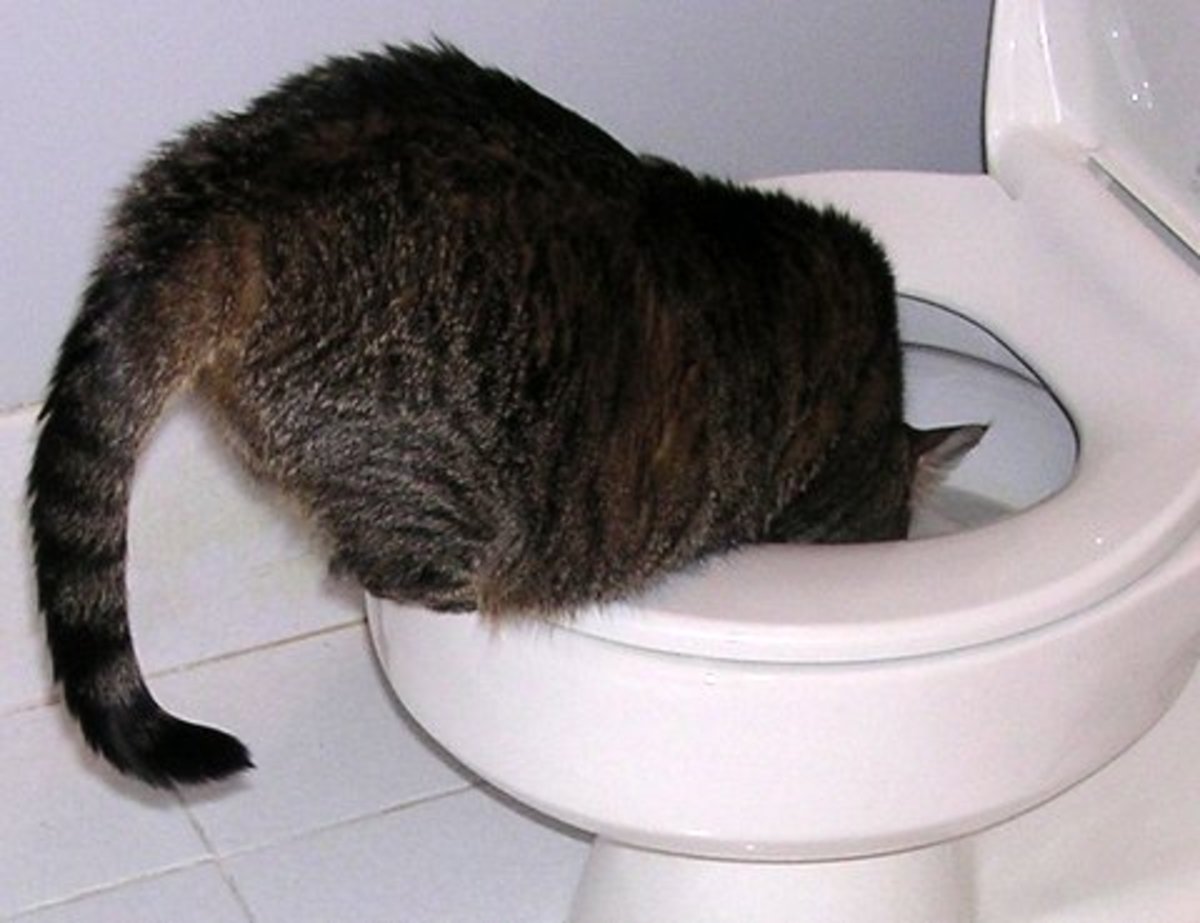Potential Risks of Flushing Cat Poop Down Your Toilet - Tips for Better Handling
Potential Risks of Flushing Cat Poop Down Your Toilet - Tips for Better Handling
Blog Article
They are making a number of great pointers related to Can You Flush Cat Poo or Litter Down the Toilet? overall in the article followed below.

Introduction
As cat proprietors, it's essential to bear in mind exactly how we dispose of our feline friends' waste. While it might appear hassle-free to purge pet cat poop down the toilet, this technique can have detrimental effects for both the atmosphere and human wellness.
Alternatives to Flushing
Fortunately, there are much safer and a lot more responsible means to take care of feline poop. Consider the adhering to options:
1. Scoop and Dispose in Trash
One of the most common technique of dealing with feline poop is to scoop it right into a biodegradable bag and throw it in the garbage. Make certain to make use of a dedicated trash scoop and throw away the waste promptly.
2. Use Biodegradable Litter
Choose naturally degradable feline trash made from materials such as corn or wheat. These litters are environmentally friendly and can be securely dealt with in the trash.
3. Bury in the Yard
If you have a yard, take into consideration hiding feline waste in a designated location far from vegetable yards and water sources. Make sure to dig deep enough to stop contamination of groundwater.
4. Set Up a Pet Waste Disposal System
Invest in a pet garbage disposal system specifically made for feline waste. These systems make use of enzymes to break down the waste, decreasing odor and ecological impact.
Health and wellness Risks
Along with environmental worries, purging cat waste can likewise posture health threats to humans. Pet cat feces might contain Toxoplasma gondii, a bloodsucker that can trigger toxoplasmosis-- a possibly severe illness, especially for pregnant females and individuals with damaged body immune systems.
Environmental Impact
Flushing cat poop introduces dangerous microorganisms and parasites into the water system, posturing a considerable risk to water ecological communities. These pollutants can negatively affect aquatic life and compromise water top quality.
Final thought
Accountable pet ownership expands beyond providing food and sanctuary-- it likewise entails correct waste monitoring. By avoiding purging feline poop down the bathroom and selecting alternate disposal techniques, we can lessen our environmental impact and shield human health and wellness.
Why You Should Never Flush Cat Poop Down the Toilet
A rose by any other name might smell as sweet, but not all poop is created equal. Toilets, and our sewage systems, are designed for human excrement, not animal waste. It might seem like it couldn’t hurt to toss cat feces into the loo, but it’s not a good idea to flush cat poop in the toilet.
First and foremost, assuming your cat uses a litter box, any waste is going to have litter on it. And even the smallest amount of litter can wreak havoc on plumbing.
Over time, small amounts build up, filling up your septic system. Most litter sold today is clumping; it is made from a type of clay that hardens when it gets wet. Ever tried to scrape old clumps from the bottom of a litter box? You know just how cement-hard it can get!
Now imagine just a small clump of that stuck in your pipes. A simple de-clogger like Drano isn’t going to cut it. And that means it’s going to cost you big time to fix it.
Parasitic Contamination
Believe it or not, your healthy kitty may be harboring a nasty parasite. Only cats excrete Toxoplasma in their feces. Yet it rarely causes serious health issues in the cats that are infected. Most people will be fine too if infected. Only pregnant women and people with compromised immune systems are at risk. (If you’ve ever heard how women who are expecting are excused from litter cleaning duty, Toxoplasma is why.)
But other animals may have a problem if infected with the parasite. And human water treatment systems aren’t designed to handle it. As a result, the systems don’t remove the parasite before discharging wastewater into local waterways. Fish, shellfish, and other marine life — otters in particular — are susceptible to toxoplasma. If exposed, most will end up with brain damage and many will die.
Depending on the species of fish, they may end up on someone’s fish hook and, ultimately on someone’s dinner plate. If that someone has a chronic illness, they’re at risk.
Skip the Toilet Training
We know there are folks out there who like to toilet train their cats. And we give them props, it takes a lot of work. But thanks to the toxoplasma, it’s not a good idea.
I recently found that piece of writing about Don’t flush cat feces down the toilet when surfing the internet. Feel free to set aside a second to share this post if you enjoyed it. Thank-you for your time spent reading it.
Click Here Report this page